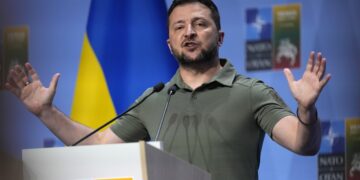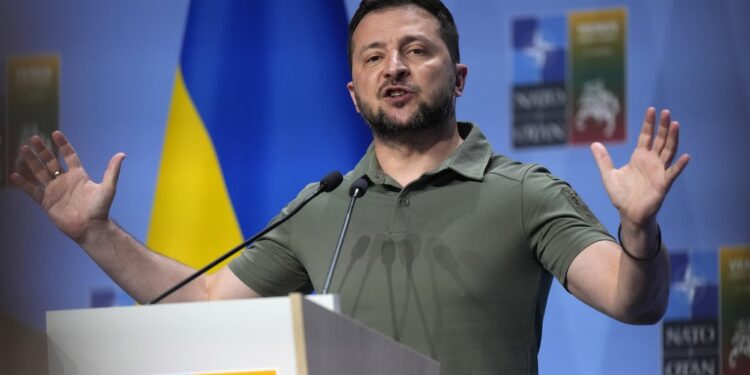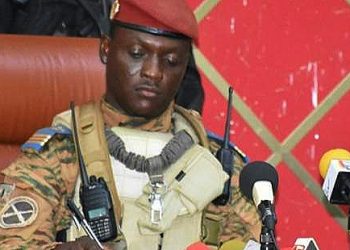By John Ikani
Ukrainian President Volodymyr Zelenskyy on Wednesday expressed gratitude for the pledges of weapons and ammunition to combat Russia’s invasion, alongside long-term security commitments from Western leaders.
He however expressed disappointment over the lack of a clear path for his country to join NATO during the alliance’s annual summit.
Flanked by U.S. President Joe Biden and other leaders from the Group of Seven (G7) nations, Zelenskyy hailed the joint declaration issued by the G7 “as a significant security victory for Ukraine.”
The declaration provides a foundation for negotiating agreements to strengthen Ukraine’s military capabilities over the long term, serving as a bridge toward NATO membership and a deterrent against Russia.
Biden reassured Ukraine, pledging an “unwavering commitment to its defense and standing for freedom.”
The two presidents also held a private meeting, where Biden acknowledged Zelenskyy’s frustration with the pace of military assistance.
Zelenskyy expressed appreciation to Biden for the financial support and emphasized that the shipments of controversial cluster munitions would aid Ukraine in its fight against Russia.
This marked a shift in Zelenskyy’s tone from earlier complaints about the absence of a clear timeline for Ukraine’s NATO membership.
The NATO-Ukraine Council was launched on the final day of the summit, creating a permanent body for consultations between NATO and Ukraine. While it aims to bring Ukraine closer to the military alliance without formal membership, the communique released by the leaders stated that Ukraine can join when allies agree and conditions are met.
NATO Secretary-General Jens Stoltenberg expressed hope “for a future alliance,” while acknowledging the current equal footing with Ukraine.
The issue of Ukraine’s future membership remained divisive and emotionally charged throughout the summit.
Western countries were willing to provide weapons to aid Ukraine’s defense against Russia, but they were reluctant to allow Ukraine to join NATO due to concerns over its democracy and deep-rooted corruption.
Maintaining a delicate balancing act, Belgian Prime Minister Alexander De Croo stressed the need to support Ukraine without direct involvement in the war.
Signs of support for Ukraine were prevalent in Vilnius, with flags displayed and messages urging NATO leaders to hasten their assistance.
Although caution prevailed within the summit, particularly from Biden, the G7 framework solidified long-term commitments to Ukraine’s security.
The commitments included the provision of weapons, military equipment, combat air power, and training for Ukraine’s army, along with economic assistance.
The major powers also pledged to impose further sanctions on Russia.
Russia responded sharply to the G7 plan, claiming that Ukraine was being used as a pawn in a hybrid war unleashed by NATO.
The Kremlin argued that the security guarantees offered to Ukraine infringed upon Russia’s own security interests.
Ukraine’s past experiences with security guarantees, such as the 1994 Budapest Memorandum, have left the country feeling let down.
Zelenskyy emphasized the importance of NATO membership and its mutual defense agreement for effective protection, as Ukraine faced challenges defending itself alone.
Despite the scripted nature of international summits, the Vilnius summit fluctuated between conflict and compromise.
Initially deadlocked over Sweden’s bid for NATO membership, the deadlock was unexpectedly resolved when Turkey dropped its objections on the eve of the summit.



































